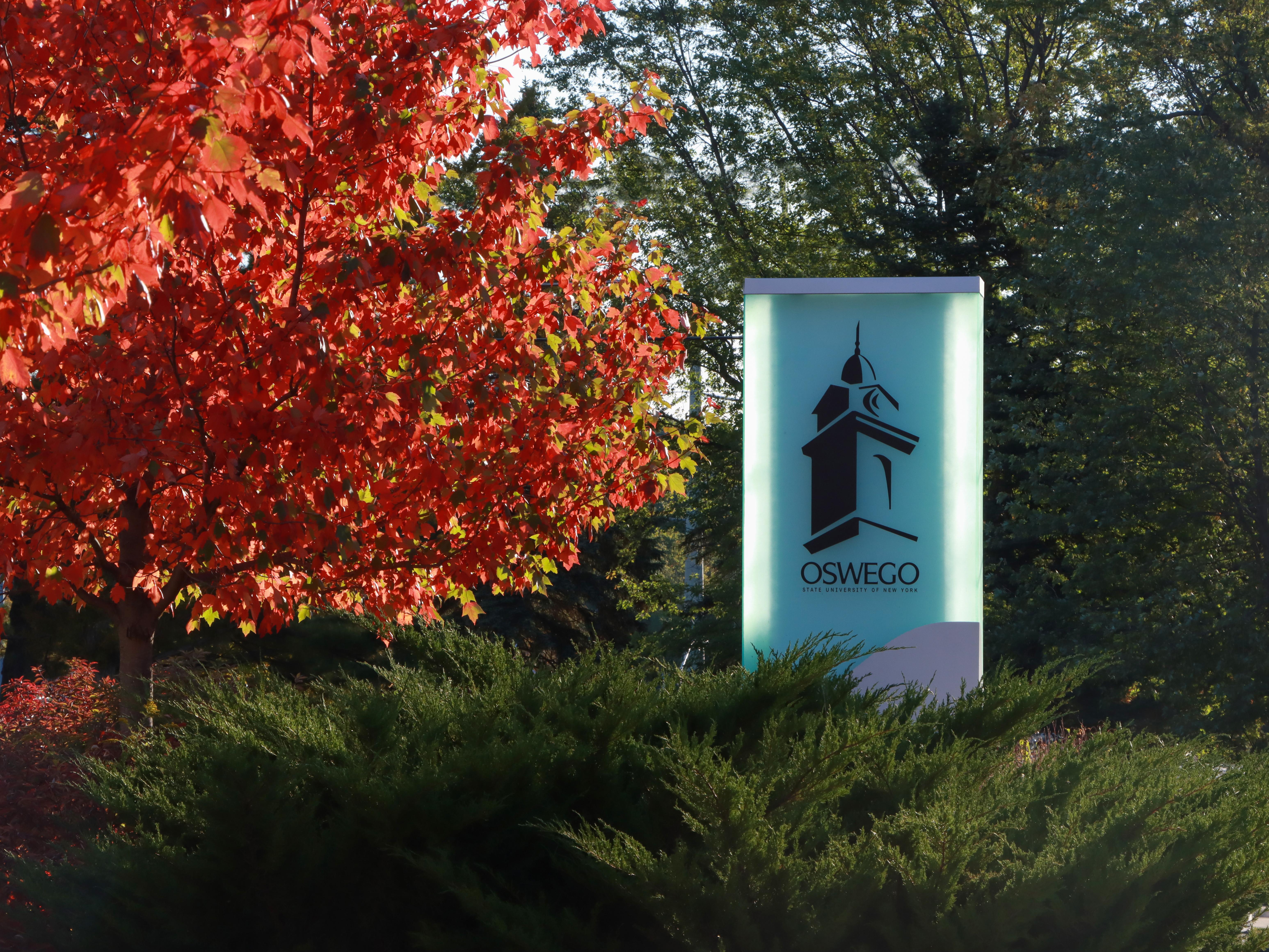SUNY Oswego graduate student Elise Briedis is among the fourth class of State University of New York/Office of Mental Health (SUNY/OMH) Scholarship Program recipients, recognizing commitment to the field and an ability to overcome obstacles.
Earlier this year, SUNY Chancellor John B. King Jr. announced the 18 outstanding students attending seven SUNY campuses this fall in this competitive program to strengthen the pipeline of mental health professionals from diverse backgrounds, with a focus on serving New Yorkers who may have historically lacked access to quality mental health care.
For Briedis, the scholarship being open to those who are passionate about the field and have overcome challenges resonated.
“I have had to overcome adversity at many points in my life as a disabled queer person, especially when it comes to my career,” Briedis said. “I was diagnosed with epilepsy at age 16, and it was never able to be fully controlled, even now, 15 years later. There are certain jobs I simply cannot do with my disability, and even jobs where I am capable, I am often looked over for more able-bodied candidates.”
Overcoming that has prepared Briedis to provide an important perspective for clients.
“I believe my firsthand experience with systemic barriers to success gives me unique and valuable insight as a counselor, and helps create a safe space for others that are often overlooked,” Briedis said.
With undergraduate work and early career in healthcare and mental health, Briedis has always known furthering education would involve a mental health discipline. But having the right role model reinforced this passion.
“I was deeply inspired by my own counselor's work with me when I was overcoming trauma in my life, and how she helped me become a more fully actualized version of myself,” Briedis said. “I always leave our sessions feeling as though all of my problems are much smaller than they seemed prior, and that my goals are very possible to achieve.”
That experience made Briedis seek out master’s programs in mental health counseling, which led to SUNY Oswego.
“I ended up selecting SUNY Oswego because I attended there for some of my undergraduate career as well, and really enjoyed learning from the professors,” Briedis said.
That the program is accredited by the Council for Accreditation of Counseling and Related Educational Programs (CACREP) is “a huge bonus,” Briedis explained.
Briedis is set to graduate in December, having learned a lot from the Oswego professors, especially at the Syracuse Campus, particularly noting Daniel Miller and Sarah Spiegelhoff as “key to my professional development.”
“They have really helped me grow as a counselor -- and just as a human,” Briedis said. “I will value their insight for years to come!”
As a practitioner and a student, Briedis takes pride in being part of a field that truly matters.
“This work is important to me because I believe mental health care is not just about treating diagnoses or symptoms - it is about creating safe and supportive spaces where people feel seen and valued,” Briedis said. “Most of my client interactions, be it at my internship or in my past work in community health, have reinforced my passion for the work that I do.”
About the SUNY/OMH Scholarship Program
The UNY/OMH Scholarship Program was established in August 2022 by Governor Kathy Hochul and is part of SUNY’s partnership with New York State’s OMH to strengthen and broaden the workforce in this important discipline.
“Helping students from all backgrounds join the ranks of mental health professionals will mean more New Yorkers are able to access these vital services going forward,” said SUNY Chancellor King.
“Mental health is important to all communities, and the SUNY/OMH Scholarship Program empowers more students to enter and thrive in this essential field,” Chancellor King noted. “We are thankful to Governor Hochul and our partners at the New York State Office of Mental Health for developing programs like this scholarship to expand care across our state.”
In addition to this program, SUNY is investing nearly $10 million in recurring annual funding to support State-operated campuses in expanding mental health services –- reaching 29 campuses enrolling more than 200,000 students –- and is investing $3 million in recurring annual funding to support mental health services at community colleges.




